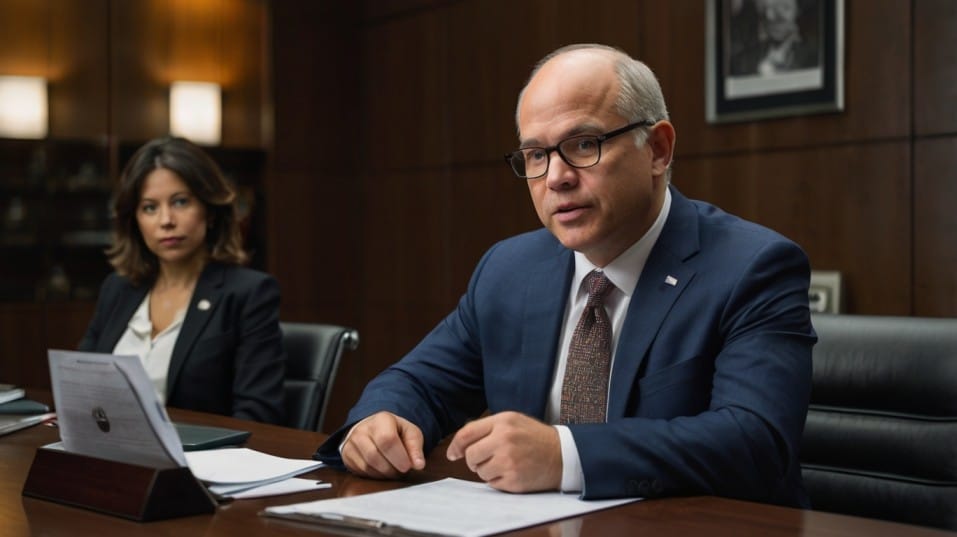How to Use Mindfulness to Navigate Workplace Politics
Learn how mindfulness helps navigate workplace politics, build strong relationships, and maintain emotional resilience in professional settings.

Do you find office politics exhausting? Navigating workplace dynamics can feel like a minefield, but a mindful approach shifts the game.
Instead of getting caught in power struggles, mindfulness helps professionals sharpen their awareness, manage emotions, and respond with strategy rather than reactivity.
By mastering presence and emotional control, professionals can build influence, foster credibility, and avoid unnecessary stress. With the right mindset, office politics becomes less about survival and more about strategic engagement.
How Mindfulness Shapes Workplace Interactions
Mindfulness isn’t just about staying calm—it’s about sharpening perception.
A mindful professional picks up on subtle power dynamics, hidden agendas, and unspoken expectations without getting swept into unnecessary tension. This awareness enables thoughtful decision-making instead of reactive responses.
A composed approach fosters respect and credibility. Rather than fueling office drama, mindful individuals communicate with precision, defuse conflicts early, and avoid the traps of emotional reactivity.
In a political work environment, this measured response can make the difference between thriving and burning out.

Reading the Room with Awareness
Understanding workplace dynamics requires more than surface-level observation. Mindful professionals cultivate the ability to sense energy shifts in conversations, detect underlying tensions, and read between the lines of office interactions.
This heightened awareness allows them to navigate discussions with diplomacy and anticipate potential conflicts before they arise.
Reducing Reactivity for Stronger Relationships
Emotional volatility damages professional relationships. Mindfulness helps professionals regulate their emotional responses, ensuring that frustration, defensiveness, or resentment don’t dictate behavior.
Instead of reacting impulsively to perceived slights or office politics, mindful individuals assess situations objectively and respond in a way that serves their long-term goals.
Strengthening Emotional Resilience Amid Office Politics
Toxic conversations, power struggles, and workplace gossip drain energy. Mindfulness builds emotional resilience by helping professionals detach from negativity and stay focused on what matters.
When confronted with tension, mindful employees recognize emotional triggers and choose deliberate responses rather than falling into reflexive frustration or defensiveness. By cultivating this steadiness, professionals gain influence.
They’re seen as reliable, objective, and capable of handling high-pressure situations without being rattled. This reputation strengthens professional relationships and positions them for success.
Managing Stress Without Losing Focus
Office politics often introduce unnecessary stress, which can cloud judgment and impact performance.
A mindfulness practice—whether through deep breathing, body scans, or conscious relaxation—helps professionals regulate their stress levels and maintain clear thinking even in high-stakes situations.
This ability to remain centered under pressure enhances credibility and leadership presence.
The Power of Emotional Intelligence
Mindfulness and emotional intelligence go hand in hand. Professionals who cultivate self-awareness and empathy can better navigate interpersonal challenges, defuse conflicts, and foster collaboration.
Recognizing emotions—both one’s own and others’—creates space for more effective communication and relationship-building, even in politically charged environments.
Practical Mindfulness Strategies for Workplace Politics
- Observe Without Reacting – Before assuming the worst about a colleague’s motives, pause. Gather information with an open mind before drawing conclusions.
- Listen More, Assume Less – Active listening prevents misinterpretations that fuel unnecessary tension. Rather than mentally preparing a counterargument while someone is speaking, focus fully on understanding their perspective.
- Pause Before Responding – A deep breath before replying can prevent knee-jerk reactions that escalate conflicts. Mindful pauses lead to responses that are thoughtful rather than emotionally charged.
- Set Firm but Respectful Boundaries – Being mindful doesn’t mean tolerating toxic behavior. It means asserting personal and professional limits without aggression or hostility.
- Detach from Office Drama – Not every workplace issue requires emotional investment. Recognizing which battles are worth engaging in—and which are distractions—safeguards energy and focus.
- Opt Out of Gossip – Mindful professionals avoid getting entangled in office rumors. They steer conversations toward constructive topics, reinforcing a reputation for professionalism and integrity.
- Align Actions with Values – Professionals who stay true to their core values avoid being swayed by manipulative tactics or unethical behaviors. Mindfulness keeps actions aligned with integrity, which fosters long-term career success.
- Use Strategic Empathy – Understanding colleagues' motivations—without being manipulated—helps in navigating workplace politics effectively. By acknowledging others' concerns while maintaining clear personal boundaries, mindful professionals build trust and collaboration.
Overcoming Workplace Politics with Mindfulness
Even with the best intentions, office politics can be draining. A consistent mindfulness practice—whether through meditation, reflection, or deep breathing—helps professionals maintain inner balance despite external chaos.
Instead of trying to control every office dynamic, they learn to master their internal state, which makes external challenges easier to navigate.
Shifting focus from external drama to internal clarity gives professionals the upper hand. They engage strategically, maintain composure, and adapt to challenges without unnecessary stress.
Mindfulness as a Leadership Tool
Mindful leaders inspire confidence and foster positive workplace cultures. By demonstrating emotional regulation, clear communication, and ethical decision-making, they set a standard for their teams.
Whether in a leadership role or aspiring to one, professionals who embrace mindfulness create environments where collaboration thrives, reducing office politics' negative impact.
Daily Practices to Stay Grounded
Incorporating mindfulness into daily routines enhances resilience in political work environments.
Simple habits like beginning the day with intention-setting, taking mindful breaks between meetings, and practicing gratitude can make a significant difference in maintaining mental clarity and emotional balance.
Final Thoughts
Mindfulness turns workplace politics into an opportunity for growth rather than a source of frustration. Staying present, regulating emotions, and engaging with intention transforms workplace interactions for the better.
Start now: In your next workplace challenge, take a mindful pause before responding. Notice how a moment of presence changes the tone of the conversation—and your control over the outcome.




